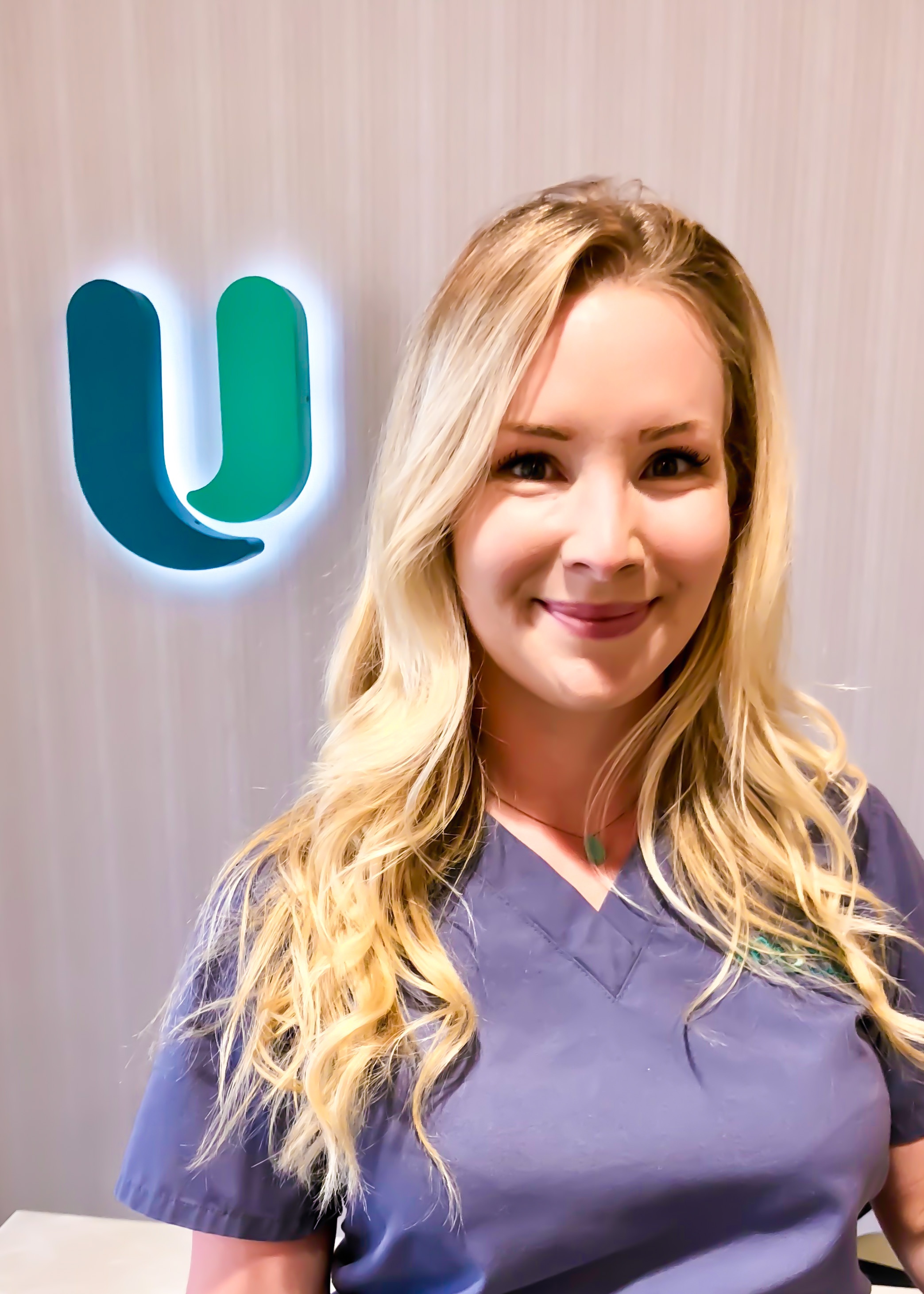 By Hallie L. • October 11, 2018
By Hallie L. • October 11, 2018
Joint Replacement Surgery Checklist
Joint replacement surgery is life-changing! And when you take extra care to prepare your life, home and health for surgery and recovery, you can help minimize discomfort and optimize your path back to full mobility. Use this checklist as a discussion starting point with your care team to help reduce pain and support your recovery as you prepare for joint replacement surgery.
 As a Muve Navigator, my goal is to help Muve Program participants feel confident and prepared as they head into their joint replacement surgery. If you are nervous about your own upcoming surgery or perhaps you or a loved one are considering surgery down the road, here are a few preparation tips that can help get you ready for a successful joint replacement recovery.**
As a Muve Navigator, my goal is to help Muve Program participants feel confident and prepared as they head into their joint replacement surgery. If you are nervous about your own upcoming surgery or perhaps you or a loved one are considering surgery down the road, here are a few preparation tips that can help get you ready for a successful joint replacement recovery.**
Life Prep
Plan early! Think about how knee replacement surgery or hip replacement surgery will affect various aspects of your life and tie up loose ends before your surgery date to make things easier for you post-op. You may want to:
- Arrange for sick leave or a short leave of absence from your job and other positions. Nowadays recovery from a total hip replacement or a total knee replacement is shorter than ever, so you can plan on resuming most normal activities in approximately six weeks.*
- Take care of any other medical needs, such as filling prescriptions for blood pressure or diabetes medications.
- Tend to as many personal needs, such as bill payments, as possible so that you can have a clear mind when you focus on your knee replacement recovery or hip replacement recovery.
- Arrange for someone to help you at home for the next few weeks. You’ll probably need quite a bit of direct help in the hours and days immediately after surgery, and may need lighter assistance up to six weeks after your joint replacement.*
- Participate in pre-surgery education by meeting with your physician and other care team members to know what to expect after your procedure. At Muve, this is a key role we play as Navigators! We’ll make sure you not only get educational materials but that you feel like you can ask any questions you have, at any time, so you’re as confident and prepared as possible going into surgery.
- Set recovery goals with the help of your surgeon and care team. If you receive your surgery at a Muve-affiliated location like Muve Lakeway ASC (Ambulatory Surgery Center), a Navigator like me will ask you what your goals are for surgery and what full mobility means for you, then help you work toward achieving those outcomes.
- Consider a program that provides an option for a stay in a post-discharge recovery setting that provides 24-hour protective oversight, on-site physical therapy, and a tailored education plan that helps you achieve your recovery goals - like the Muve Health program!
Home Prep
You’re likely going to be home for a few weeks while you recover. Make sure your house is optimized for a safe and successful recovery so that your return to home is flawless. Here are some tips to consider with your care team:
- Practice using mobility equipment to get around your home; identify and remove any obstacles from pathways. If you’re part of the Muve program, we’ll make sure to help you in this process!
- Arrange your furniture for maximum comfort and convenience. Make sure you can see the television and access your computer, for example, and place end tables where you can easily set food, beverages and other necessities.
- Go grocery shopping and stock up on healthy foods that promote recovery, especially foods rich in iron, vitamin C, and calcium; eating high fiber foods can help you avoid constipation associated with pain medications and other medicines. Avoid eating high-calorie, high-fat or sugary snacks that can cause you to gain excessive weight during recovery.
- Prepare and freeze meals ahead of time - and make sure they are easy to cook and serve! Ask your support partner to provide fresh food, such as side salads, if they are able.
- Consider installing a raised toilet seat, and horizontal and/or vertical grab bars beside the toilet and in the shower. You and your care team may decide that you should get a shower chair or bathroom commode that you can use for safe and comfortable showering.
- Clear cords from your path, remove rugs and slippery carpets, and install nightlights in dark hallways.
- Have several sets of comfortable clothes available so you can enjoy clean clothes without the daily hassle of laundry.
Health Prep
Your surgeon and care team should work with you to ensure you’re as healthy as possible before surgery to help reduce your risk of surgical and post-discharge complications. Here are some tips that you and your care team may consider together:
- Exercise up until the day of your surgery (but only if it's not too painful!) to improve your strength, range of motion and endurance, which all help lead to a successful recovery and outcome.
- Review and learn about circulation exercises to help control swelling and reduce certain complications, such as blood clots.
- Learn about the possible complications associated with surgery and their symptoms. Serious complications occur in fewer than 2 percent of knee or hip replacement procedures, according to the American Academy of Orthopaedic Surgeons. While serious complications are rare, it’s still important that you understand what complications may occur and what to look for.
- Communicate with your surgeon and care team to be aware of the following complications and their signs:
- Wound infection – usually appears as redness, swelling or the appearance of discharge from the incision
- Infection around the prosthesis – symptoms include increased pain or swelling, warmth and redness around the joint, drainage from the incision, fevers and chills, and night sweats
- Blood clots – swelling and pain, usually in the leg
- Malfunction of the prosthesis
- Nerve injury – surgery may rarely cause injury to nearby nerves
Muve Program Prep
When you decide to have your knee replacement or hip replacement surgery at a Muve Health location, you’ll be connected with your own personal Muve Navigator (like me!). In the weeks leading up to your procedure, we’ll help you prepare yourself for surgery and address any concerns you might have. We’ll also ask you what this surgery means to you (More playing with your kids? Getting back to biking?) and work with you to outline your goals and set expectations. At Muve, our biggest pride is getting you back to doing the things you love.
After your surgery, your Muve Navigator will also stick with you when you are discharged from the ASC and become a client in the Muve Stay Suites. There, we’ll introduce you to a physical therapist who will help get you up and practicing walking, and we'll educate you on how to best take care of yourself when you go home. And when you leave our Stay Suites, we’ll be available by phone or text 24/7 for up to a year after your surgery - so if you have any remaining questions, we’re only a call or a few clicks away!
If you’re considering knee replacement or hip replacement surgery, get in touch with a Muve team member today. We’d love to talk through your situation, explain our innovative program and help you take the next steps toward getting back to living life fully again.
To learn more about Muve Health and our innovative approach to total joint replacement care and recovery support, visit muvehealth.com or call our flagship center, Muve Lakeway ASC and Muve Lakeway Stay Suites in Lakeway, Texas, at (512) 357-8220.

